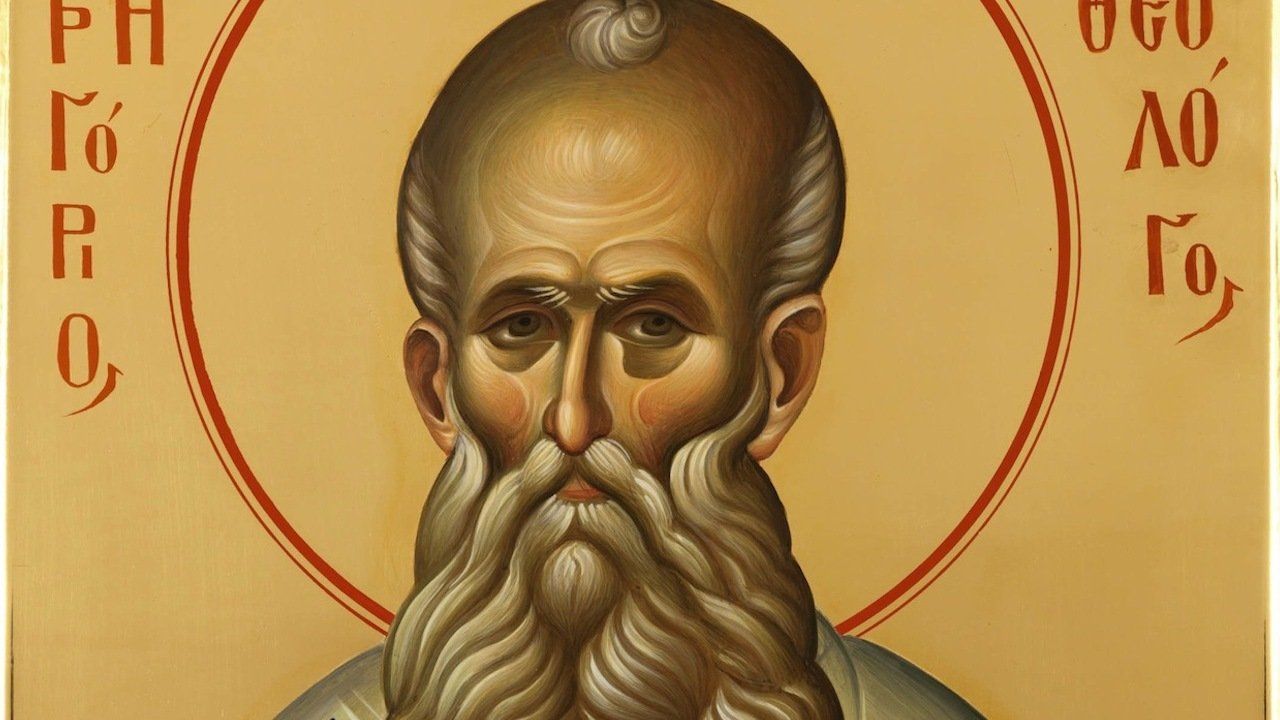FROM SAINT
Gregory’s oration
On the Nativity:
Ὁ Λόγος παχύνεται.
The Logos becomes thick.
When the God-bearing teacher says that the “Logos becomes thick,” I think he does so with the following ideas in mind. Either because the Logos, who is simple and incorporeal, and who spiritually nourishes all the divine powers in heaven according to rank, deemed it worthy to “become thick” through His manifestation in the flesh (which was taken from us, and for us, and is consistent with us, but without sin), so that He might instruct us, by means of words and examples suited to us, in mysteries that transcend the power of all human speech. (For we know that all that He said was in the form of parables, and that He said nothing without a parable, for teachers typically have recourse to parables whenever their pupils are not immediately able to follow them, and so endeavor to lead them to an understanding of what is being said.) Or one could say that the Logos “becomes thick” in the sense that for our sake He ineffably concealed Himself in the logoi of beings, and is obliquely signified in proportion to each visible thing, as if through certain letters, being whole in whole things while simultaneously remaining utterly complete and fully present, whole, and without diminishment in each particular thing. He remains undifferentiated and always the same in beings marked by difference; simple and without composition in things that are compounded; without origin in things that have a beginning; invisible in things that are seen; and incapable of being touched in all that is palpable. Or one could say that the Logos “becomes thick” in the sense that, for the sake of our thick minds, He consented to be both embodied and expressed through letters, syllables, and sounds, so that from all these He consented to be both embodied and expressed through letters, syllables, and sounds, so that from all these He might gradually gather those who follow Him to Himself, being united by the Spirit, and thus raise us up to the simple and unconditional idea of Him, bringing us for His own sake into union with Himself by contraction to the same extent that He has for our sake expanded Himself according to the principle of condescension.
*Translated by Nicholas Constas in On Difficulties in the Church Fathers - The Ambiguua, Vol. 2; available for purchase at Eighth Day Books.










